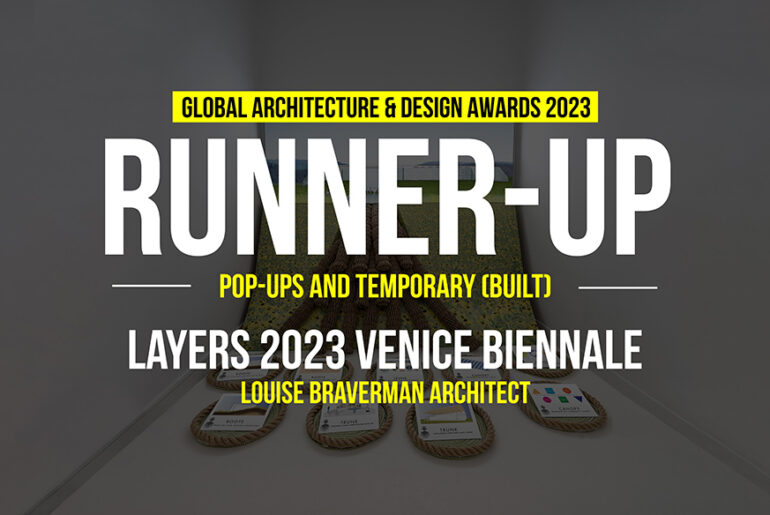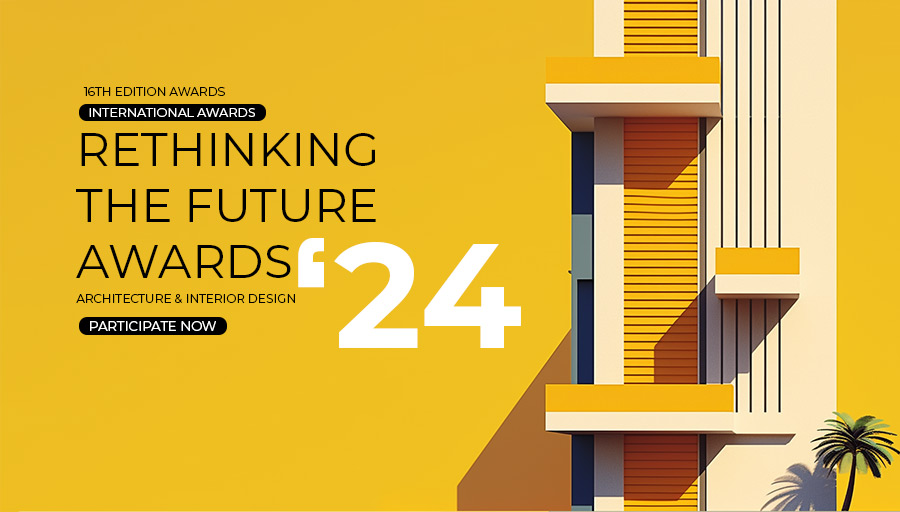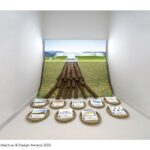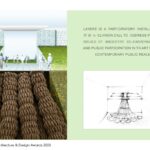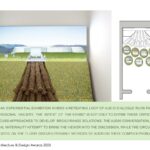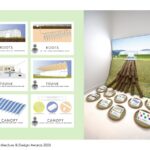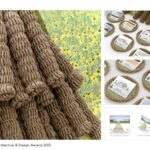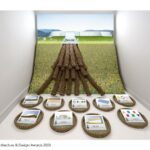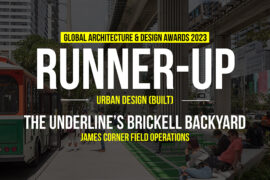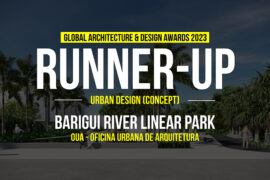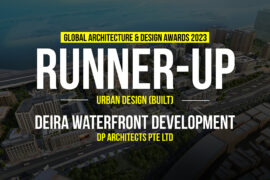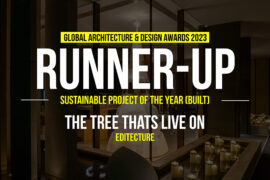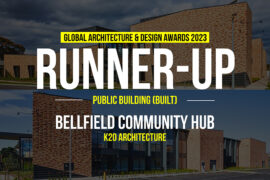Layers is a light filled environmental installation composed of a large-scale glowing light box, three-dimensional imagery, audio dialogue and organic material that is situated at the Time Space Existence Palazzo Bembo Exhibit at the 2023 Venice Architecture Biennale. It is an experiential exhibition where a repeating loop of audio dialogue runs parallel to three-dimensional imagery.
Global Design & Architecture Design Awards 2023
Third Award | Pop-ups and Temporary (Built)
Project Name: Layers 2023 Venice Biennale
Category: Pop-Ups and Temporary
Studio Name: Louise Braverman Architect
Design Team: Louise Braverman, Phoebe Cox
Area: 85 sq. ft
Year: 2023
Location: Venice, Italy
Consultants:
Photography Credits: Chiara Becattini
Render Credits: Louise Braverman Architect
Other Credits: Hand Drawings: Louise Braverman
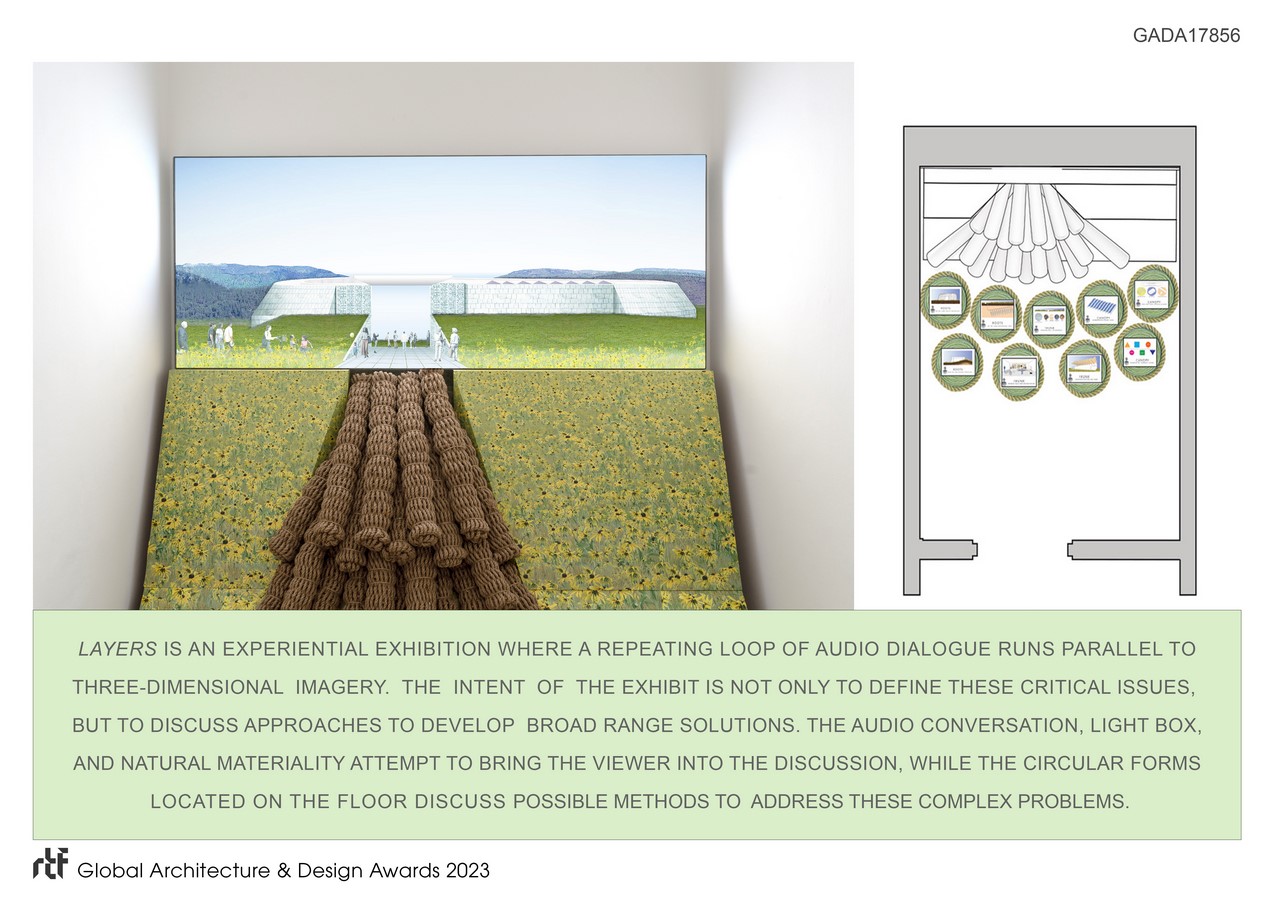
The exhibit depicts a moment in time in the woodlands where image, materiality and oral conversation intertwine. Together they address pivotal issues of ancestry, de-carbonization, and public participation with art in our contemporary public realm. The physical metaphor of a tree with its hyper-exaggerated jute roots splaying three-dimensionally into the earth displays the need to incorporate critical contemporary architectural investigations early on in our architectural design process.
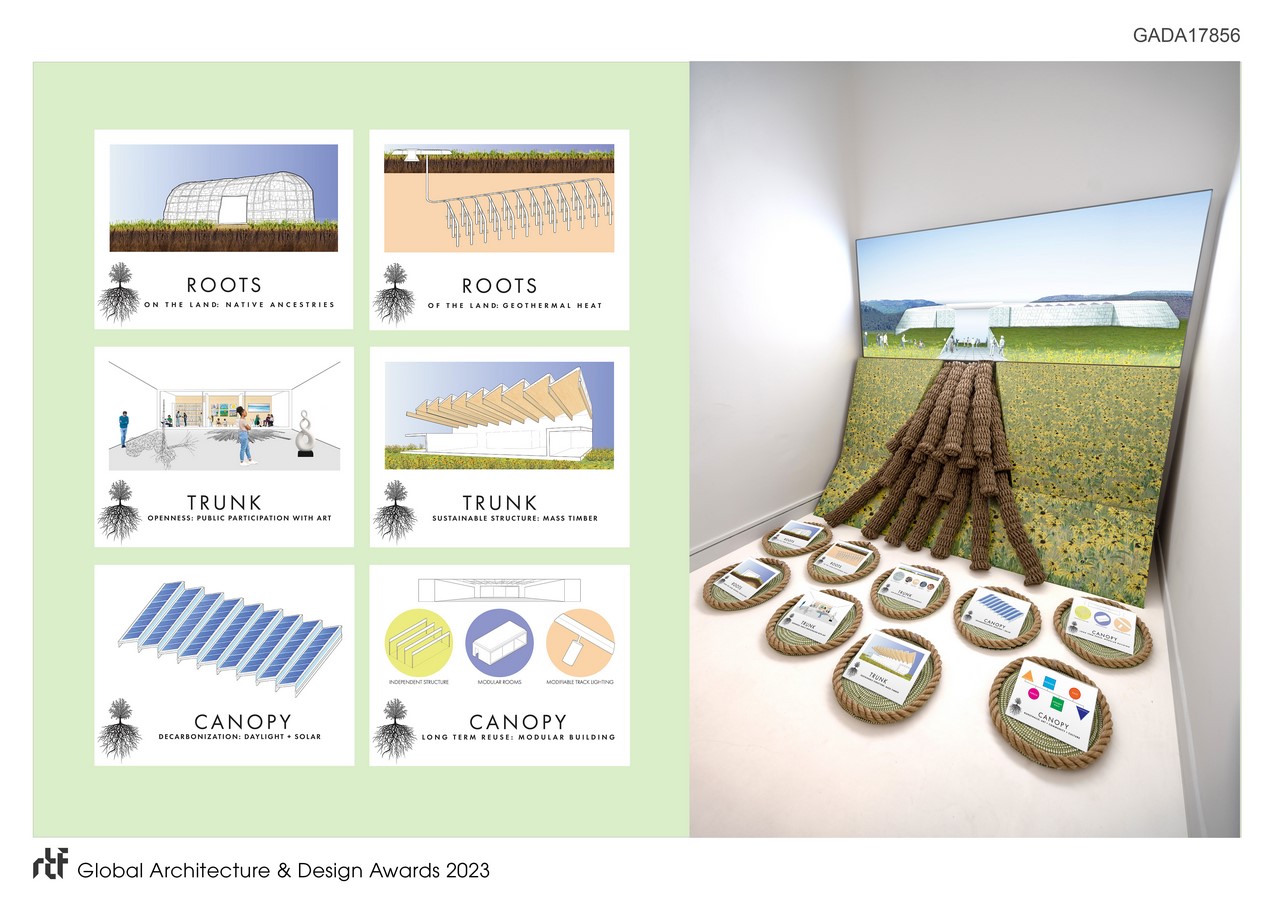
The installation considers how cultural architectural projects can become one with their surrounding landscapes. Although it is specifically a display of conceptual ideas, it literally lays out on the floor of the exhibit multiple architectural approaches that we can explore to sustainably embed our cultural projects into their context. Whether researching native ancestry, structuring forms with local mass timber, or powering environments with site specific geothermal heat, today’s cultural built form must integrally unite with their native milieu.
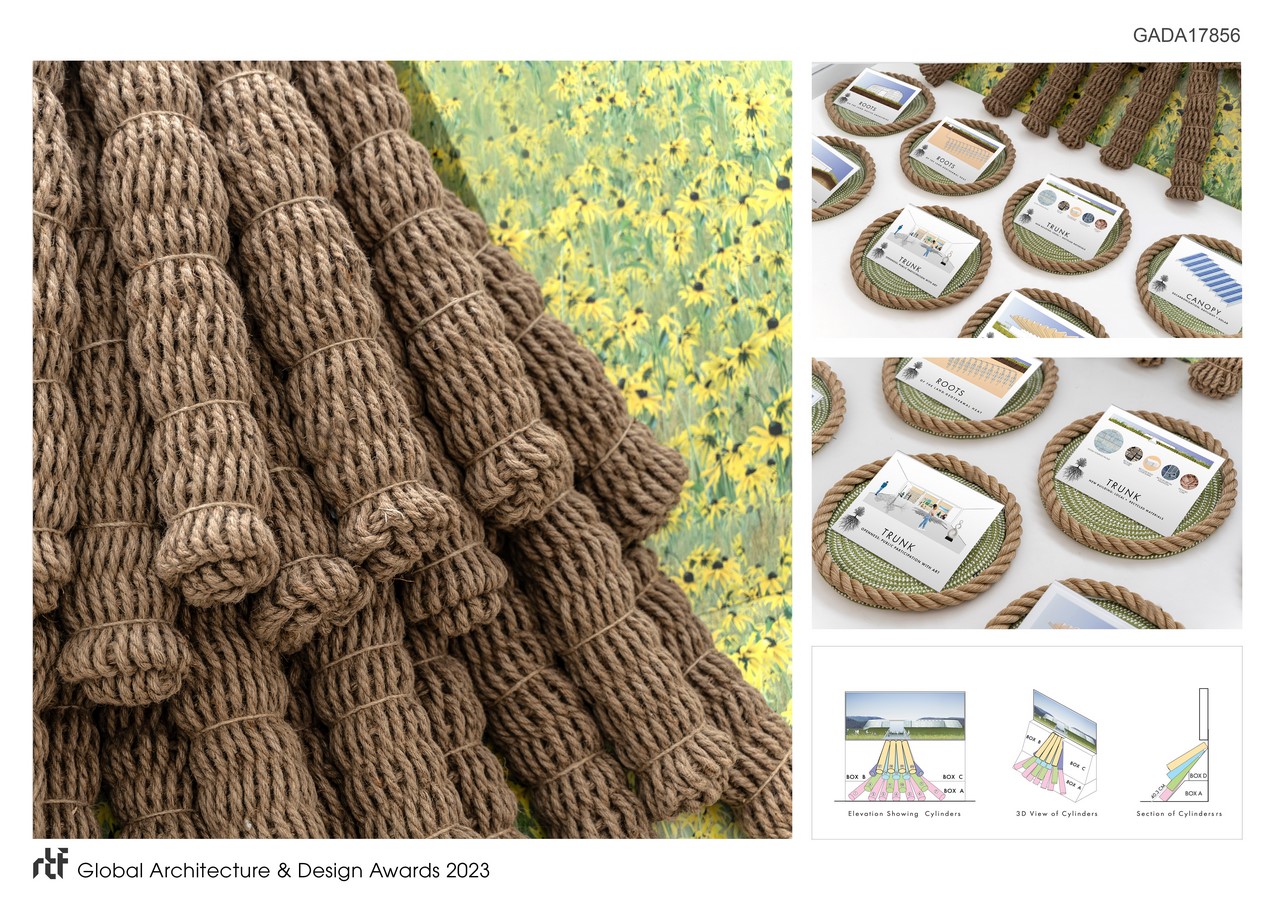
The intent of the exhibit is not only to define these critical issues, but to discuss approaches to develop broad range solutions. The audio conversation, light box, and natural materiality attempt to bring the viewer into the discussion, while the circular forms located on the floor discuss possible methods to address these complex problems. The installation is participatory. It is a clarion call to our communities to investigate the interconnected architectural components of our cultural arts institutions today and in the future.

